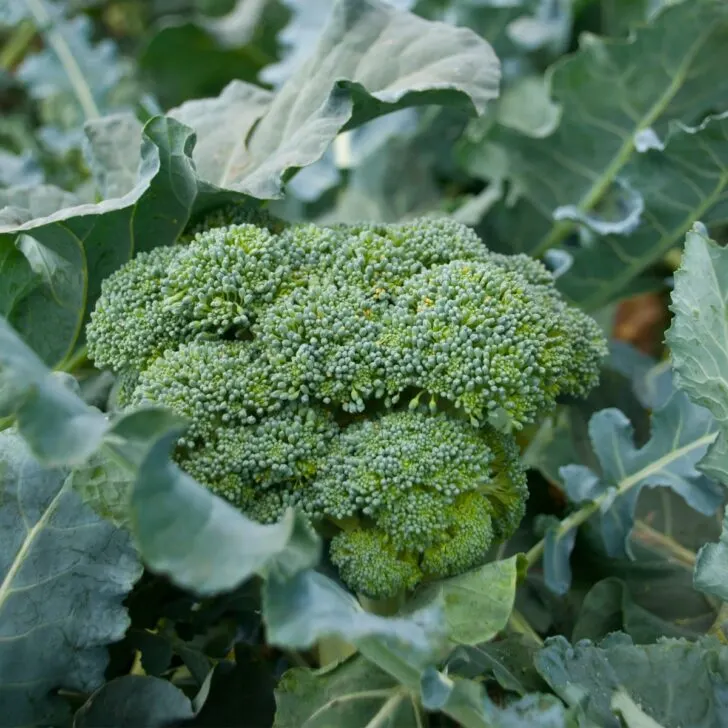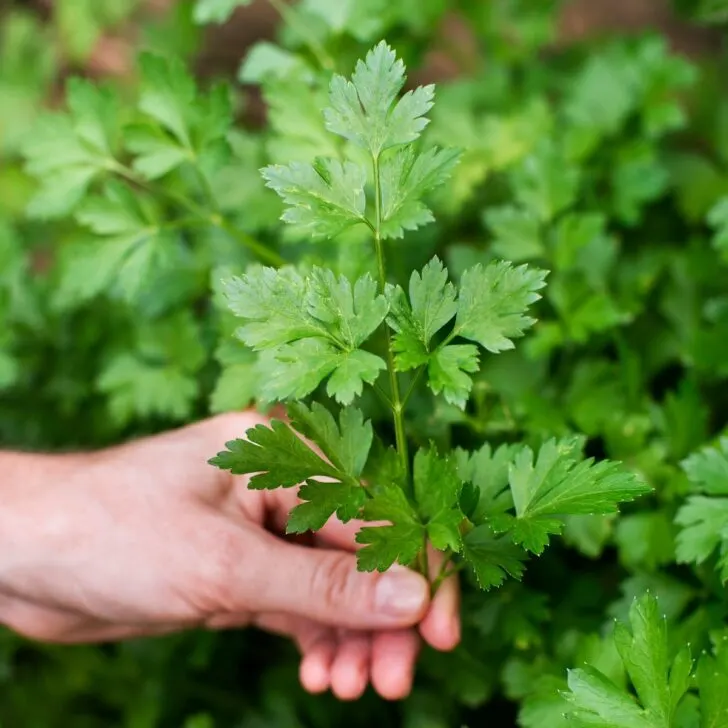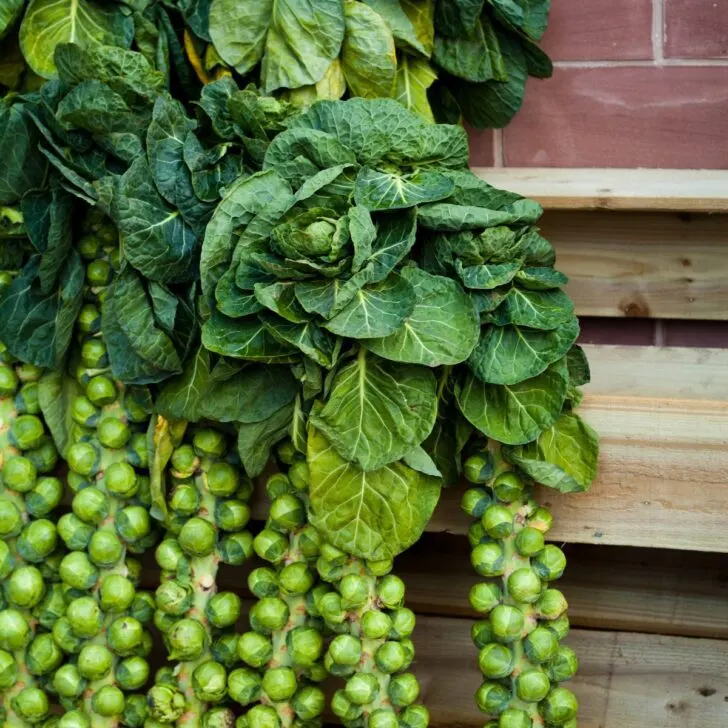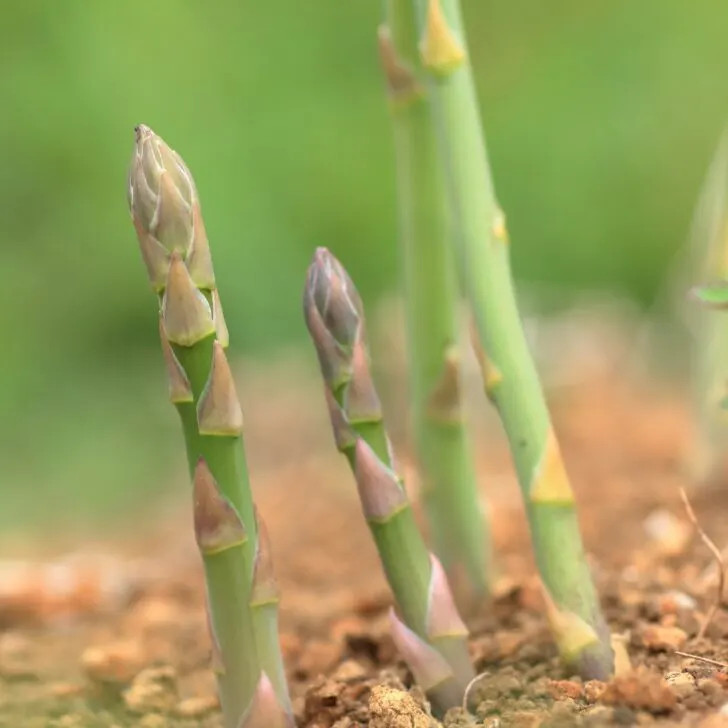Discover the best companion plants for carrots to boost growth, deter pests, and maximize your vegetable garden's overall health.
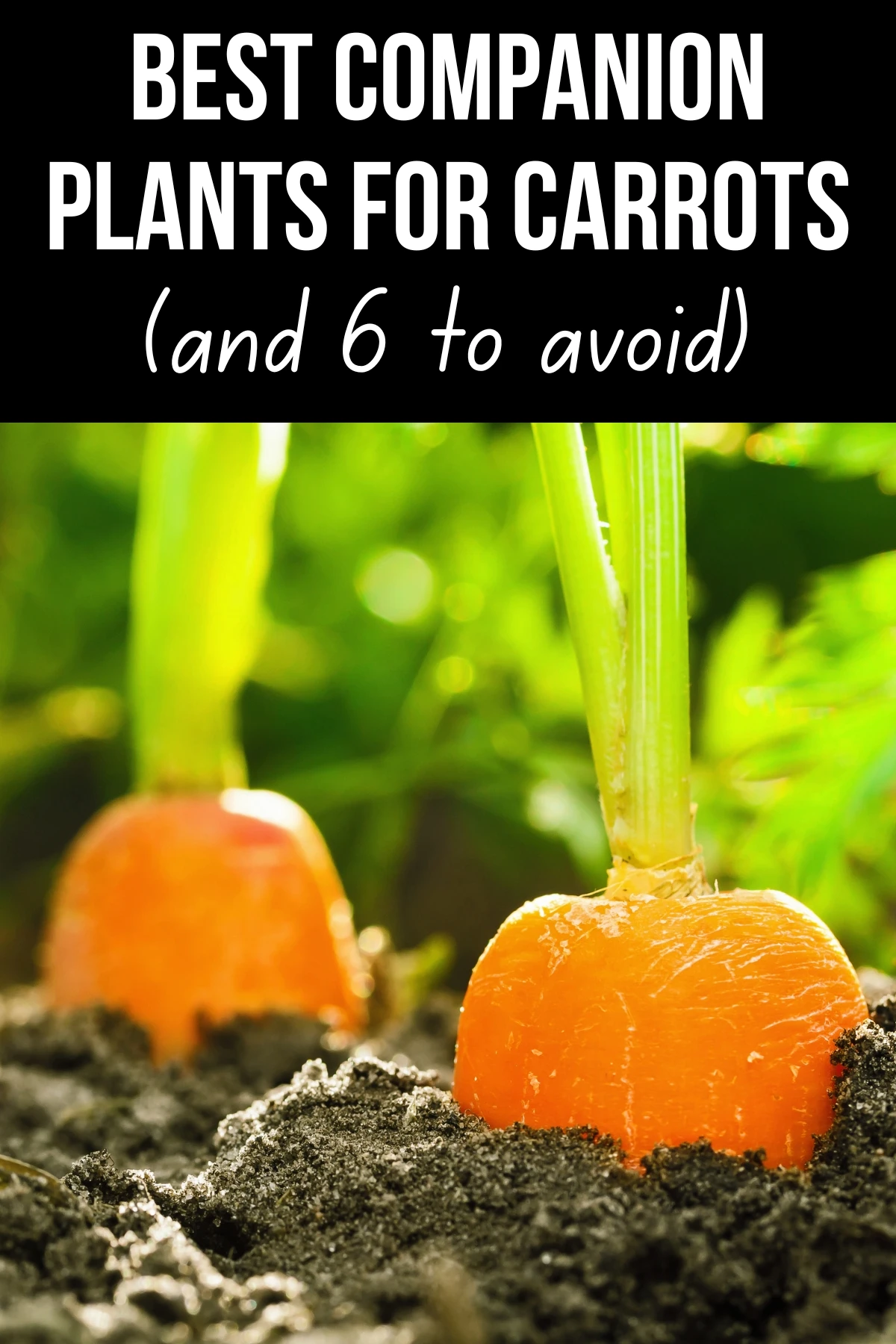
Would you like some help in the garden? Let the plants assist you by companion gardening!
Companion planting can increase your harvest and reduce how much work it takes to grow them. Companion plants can repel pests, improve the use of soil nutrients, save garden space, and so much more.
Today, we're looking at companion planting with carrots. These crunchy vegetables can really thrive when they grow near the right plants. The aim here is to understand what types of plants make the best roommates for our carrots, and which to avoid.
Let's get growing!
What to plant with carrots
| Companion Plant | Benefits for Carrots |
|---|---|
| Alliums (garlic, chives, leeks, shallots, and onions) | Repels carrot flies |
| Sage | Aromatic, repels pests |
| Rosemary | Aromatic, repels carrot flies, enhances carrot flavor |
| Nasturtiums | Repels various insects, attracts beneficial insects and pollinators, acts as a trap crop |
| Marigolds | Deters many pests and attracts beneficial insects |
| Lettuce, Kale and Greens | Shallow roots complement carrot's deep roots |
| Broccoli | Benefits from nutrients brought up by carrot roots |
| Brussels Sprouts | Benefits from nutrients brought up by carrot roots |
| Radishes | Marks carrot rows as they germinate quickly, loosens soil for carrot root development |
| Tomatoes | Provide shade, improving carrot conditions |
| Peas and beans | Adds nitrogen to soil, benefiting carrots |
| Cilantro | Repels nematode worms |
| Basil | Improves carrot flavor, repels nematode worms |
| Oregano | Repels nematode worms |
What not to plant with carrots
| Plant to Avoid | Reasons for Avoidance |
|---|---|
| Dill and Parsley | Attracts the same pests as carrots. Can cross-pollinate, affecting flavor and quality. |
| Potatoes, Parsnips and Beets | Competes for space and nutrients |
| Celery | Competes for water and nutrients |
Things to know about growing carrots
Carrots are one of those cool-season crops that can be grown almost anywhere, given the right conditions. They're usually planted in early spring and fall. This plant grows fastest and largest in full sun. However, you can also produce small but delicious carrots in partial shade.
Carrots thrive in loose, sandy, well-draining soil. They need room to push down and expand their root without hitting a roadblock. Soil that is too heavy or rocky can lead to stunted or oddly shaped carrots.
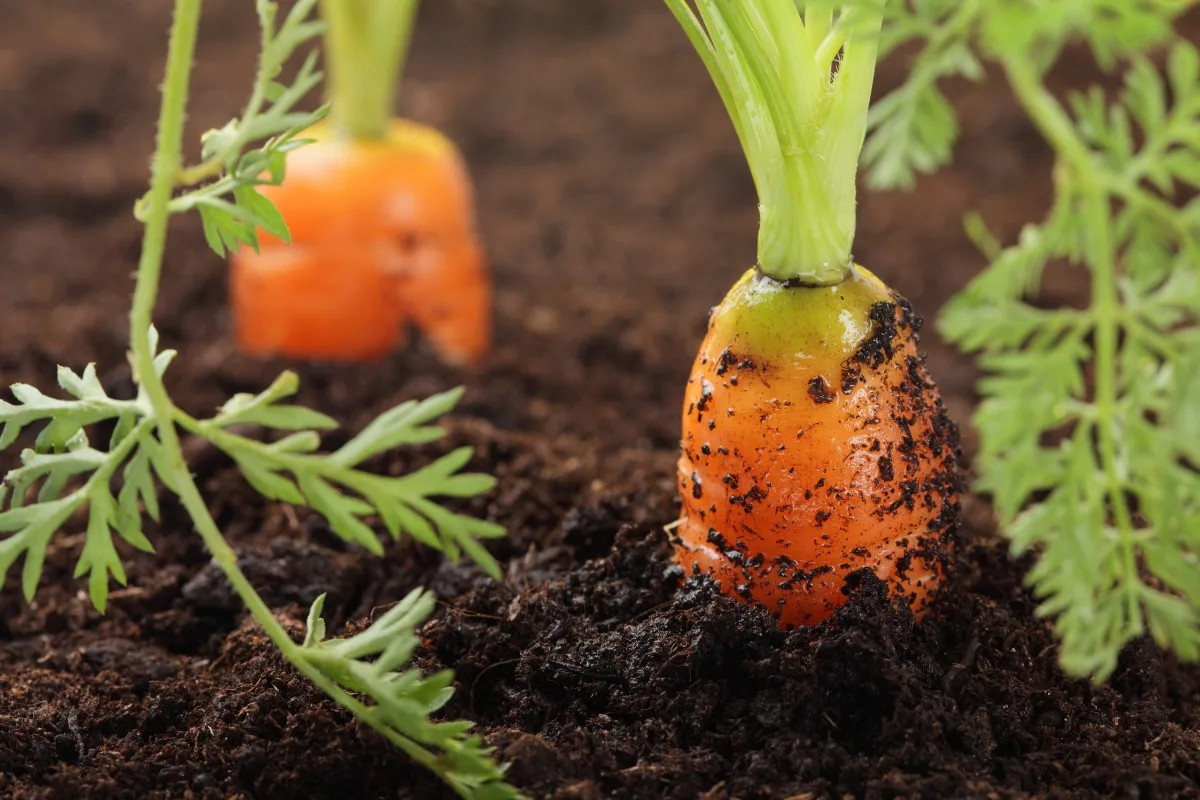
Carrots also appreciate consistent moisture. Too dry, and they can split. Too wet, and they can rot. The trick is to provide steady, even watering. Drip irrigation on a timer can provide consistent moisture right at the roots.
Lastly, carrots prefer a soil pH between 6.0 and 6.8. This range helps them take up nutrients efficiently, leading to healthier growth and better-tasting produce.
Read my full tutorial on how to grow carrots here!
Best Companion Plants for Carrots
Consider your goals when companion planting with carrots. Do you want to deter pests, increase production or improve taste? In a perfect world, there would be one plant that could help with all three! But if you're short on space, you need to pick your battles.
Pest Management
The carrot fly is one of this crop's most frequent and damaging pests. These insects lay their eggs in the soil near carrot roots. When the larvae hatch, they feast on the growing roots and root hairs, hollowing out the edible parts and stunting growth.
For this reason, some of the best companion plants for carrots are those that can deter or distract carrot flies, including:
- Alliums like garlic, chives, leeks, shallots, and onions
- Sage, rosemary, and other aromatic herbs
- Nasturtiums
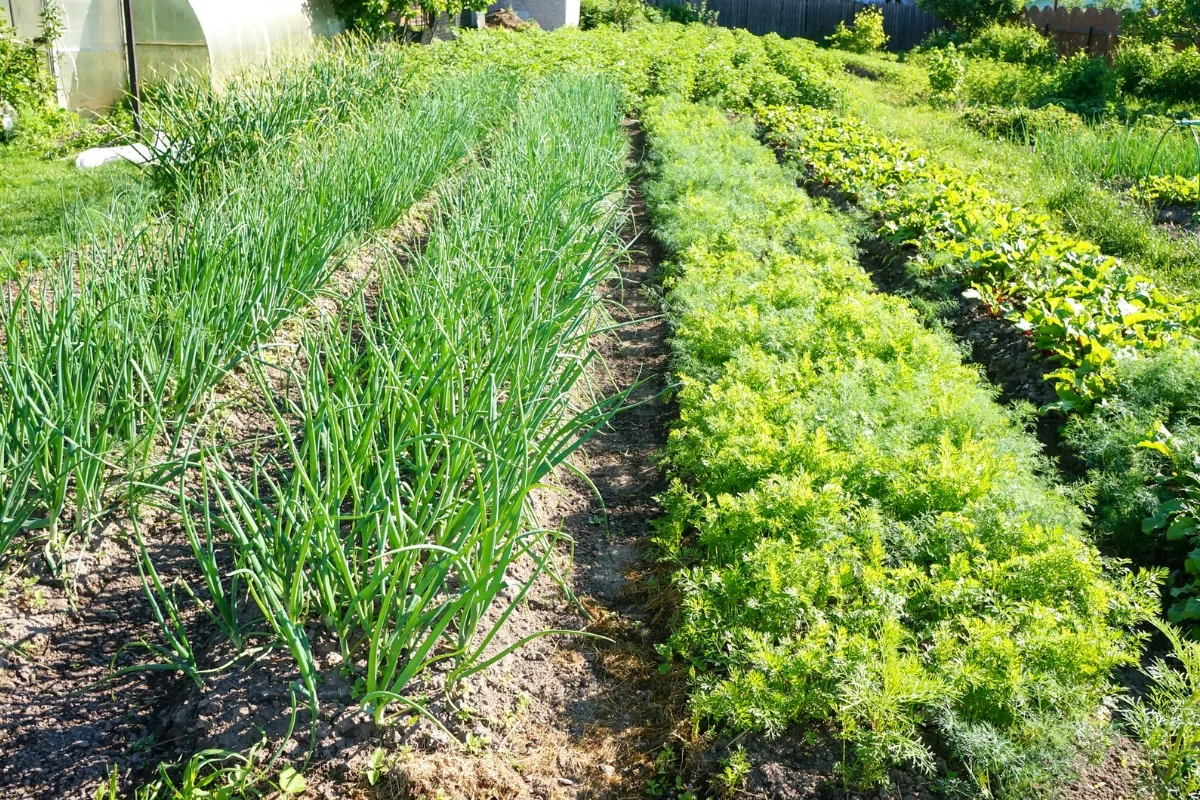
Carrots and leeks are one of the most beneficial pairings. Carrots are susceptible to carrot flies, and leeks are a magnet for onion flies and leek moths. However, the strong smell of each confuses the pests of the other, keeping both safe.
Nasturtium flowers repel several insects and attract others, making them an excellent example of a trap crop that lures troublesome pests away. Nasturtiums can also attract pollinators and other beneficial insects, and the flowers are edible. I always have several nasturtium plants growing in my vegetable garden!
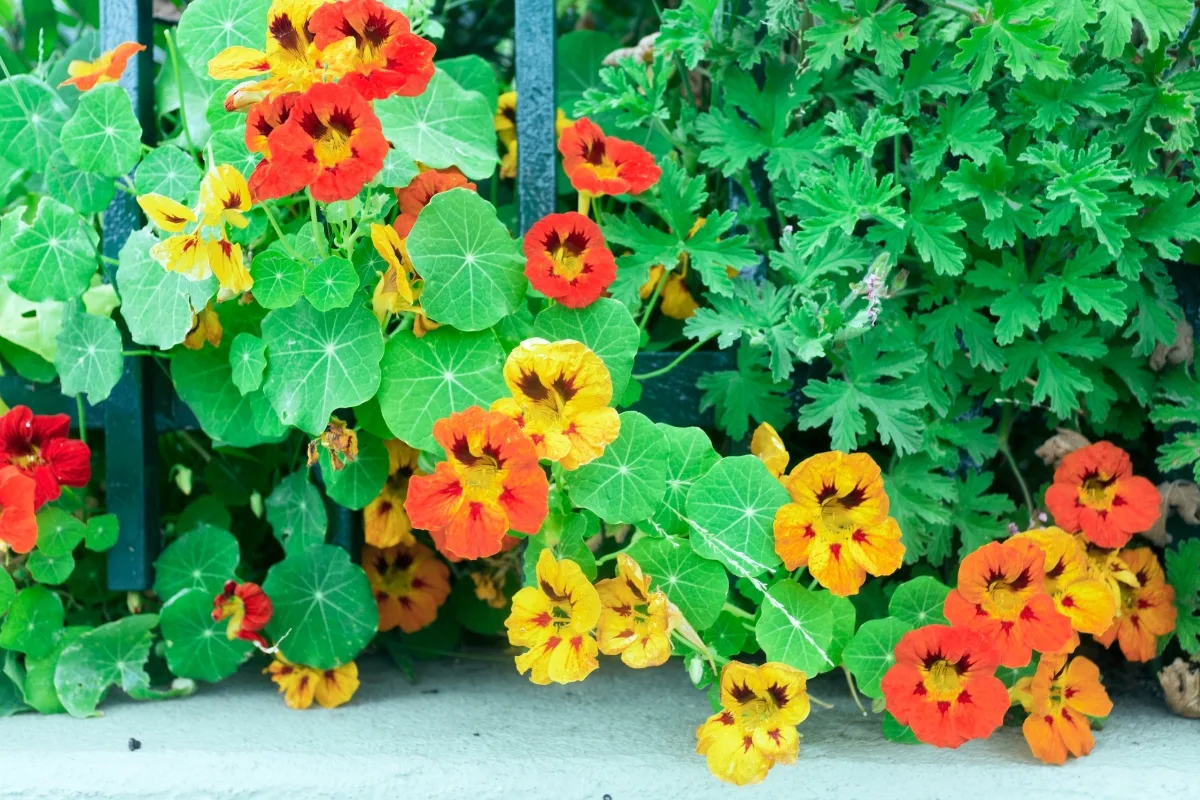
Marigolds also have a reputation for helping carrots because their smell deters many pests. In addition, marigolds attract beneficial insects that can help pollinate many vegetable flowers.
Increase production
Several other vegetables that might benefit from growing near carrots include:
- Lettuce
- Broccoli
- Kale and other greens
- Brussels sprouts
- Radishes
These plants have shallow roots, and the deep roots of carrots can bring up nutrients and move them closer to the surface where these crops can access them.
This extra dose of minerals can improve flavor in the companion crops. In addition, carrots can also help loosen the soil so water can penetrate more efficiently for these plants.
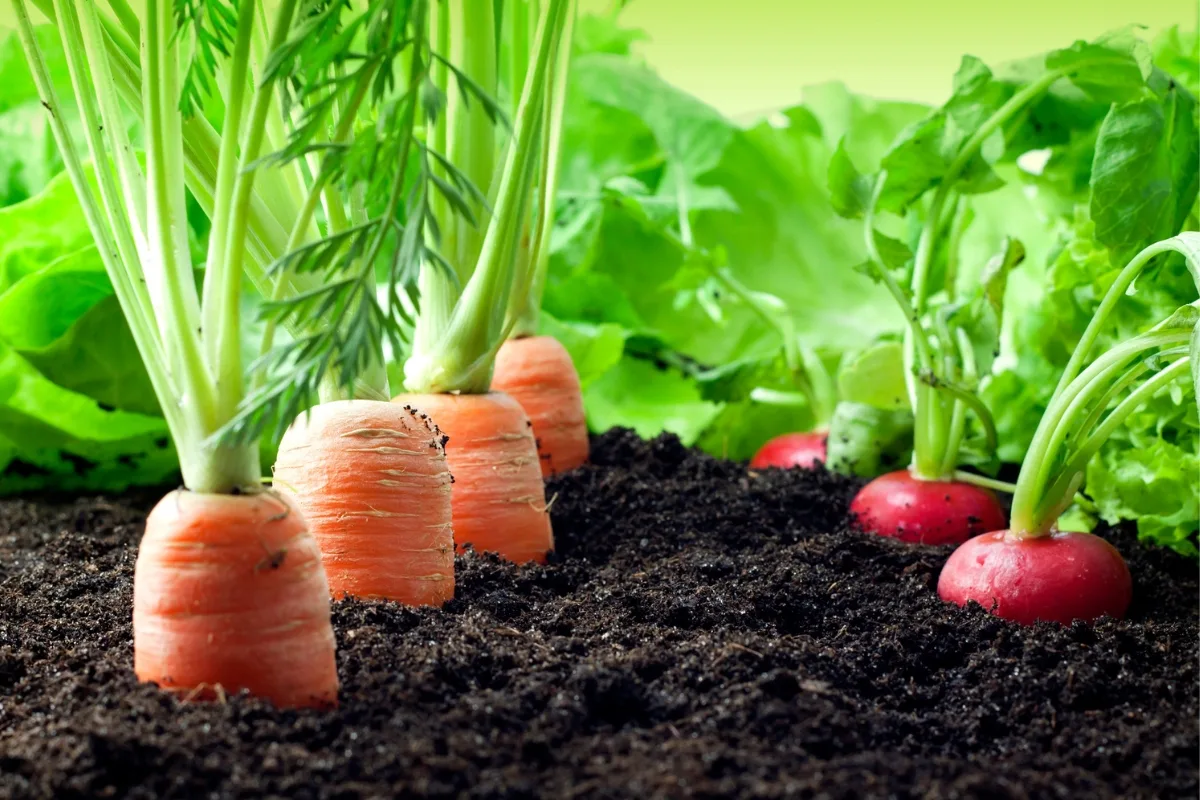
Planting a row of radishes a few inches away from a row of carrot seeds can be used to mark where the carrots grow because radish seeds germinate quickly and carrots slowly.
Also, radishes are ready for harvest in as little as 40 days, and pulling them up loosens the soil, making it easier for the carrots to develop straight roots that don't get deformed by hard soil.
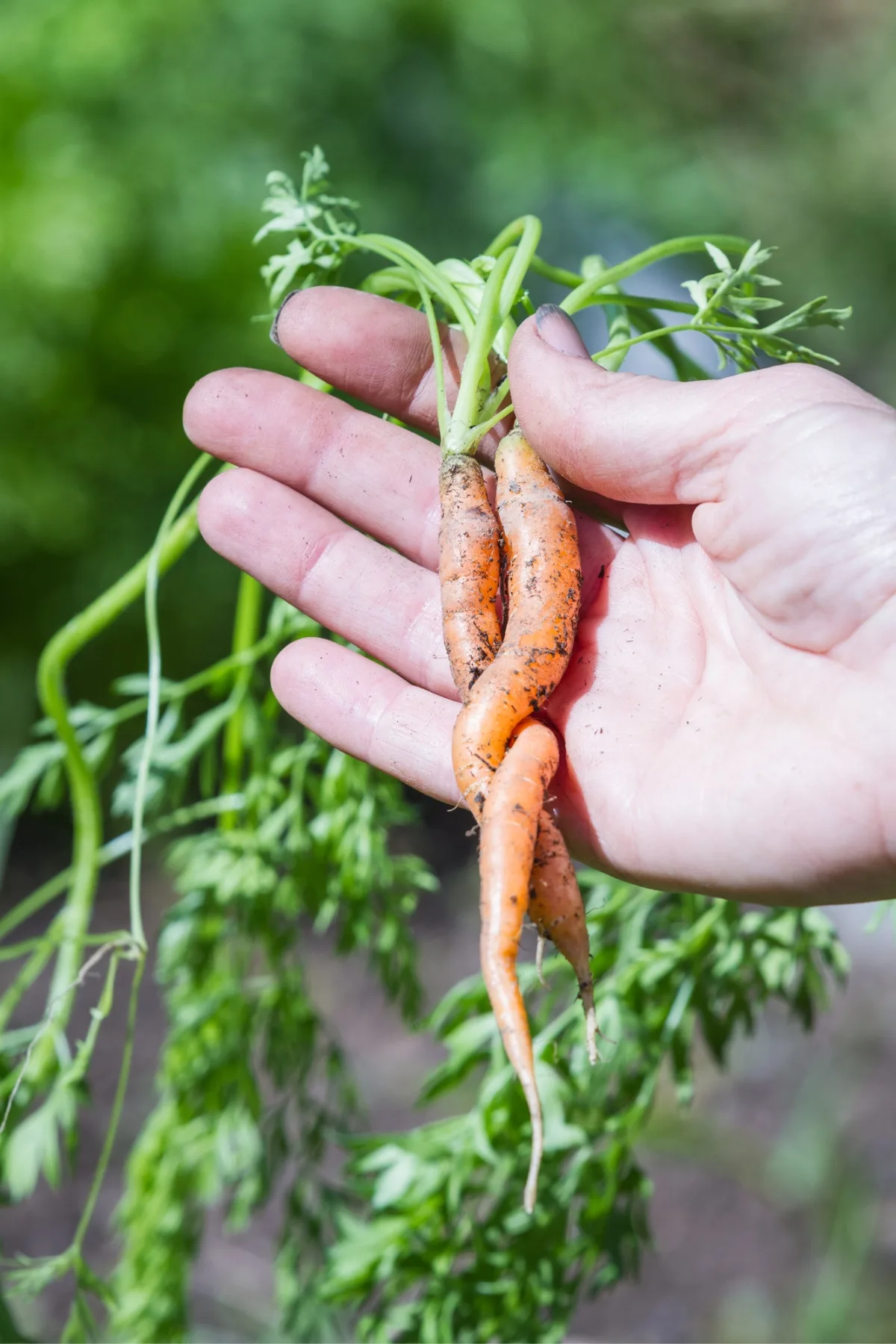
Planting tomatoes near carrots is beneficial as they grow taller and provide the much-needed shade for carrots, especially during the hotter months. The carrots appreciate the cover, and in return, they break up the soil allowing the tomato roots to penetrate deeper.
Peas, beans and carrots are a great combination as legumes can add nitrogen to the soil, which carrots can benefit from. If they're are grown on a tall trellis, it can also help shade the carrots from intense heat.
Improve taste
Several herbs also work well as companions for carrots by improving flavor and repelling nematode worms, another frequent pest of carrots. These include:
- Cilantro
- Basil
- Oregano
Cilantro and carrots are in the same plant family, and both grow best early in the growing season. For this reason, it can draw away many carrot pests.
Lastly, rosemary is thought to enhance the flavor of carrots. The strong scent of rosemary also helps deter carrot flies.
Plants to Avoid with Carrots
There are some crops that you should avoid planting near your carrot patch. Some can attract more pests, and others just won't live harmoniously together.
First up is dill. Now, this might surprise you, because dill and carrots are often paired in recipes. But in the garden, it's a different story.
Dill is part of the carrot family, and will attract the same pests. Because they're related, they can cross pollinate, resulting in seeds that produce weird tasting carrots! Best to keep these two apart.
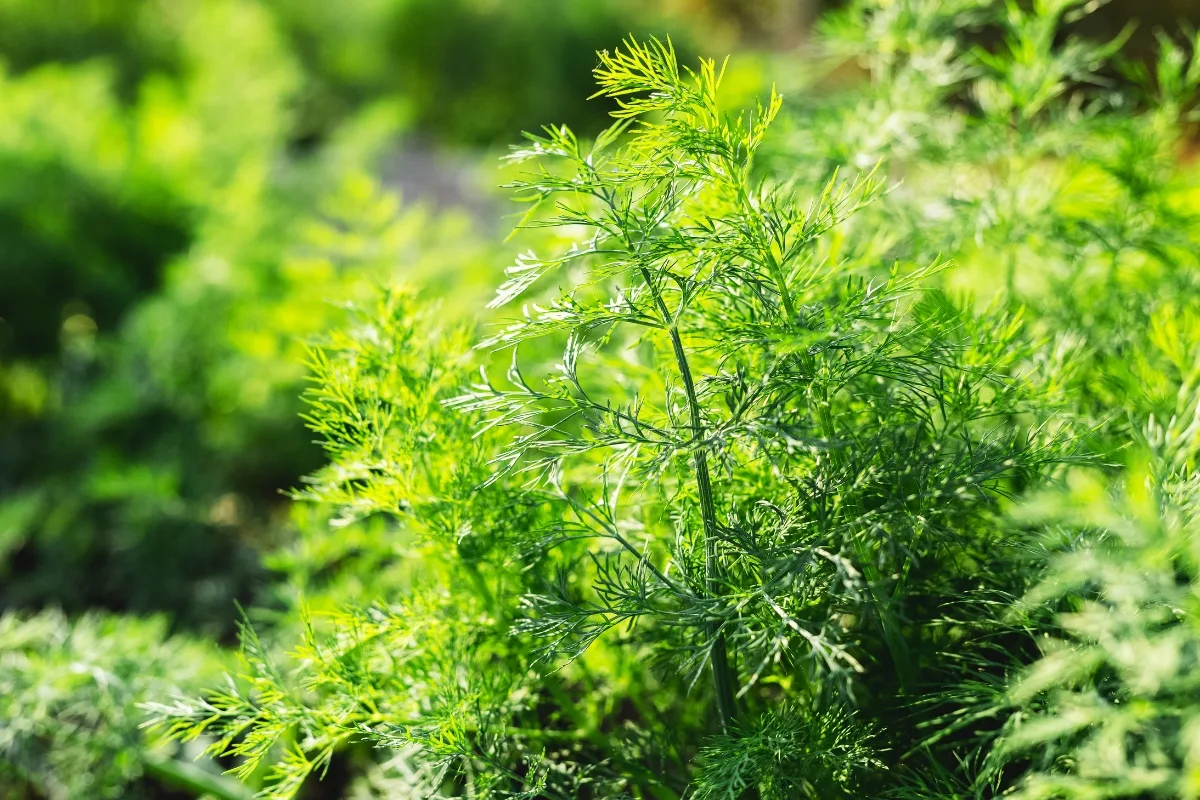
Parsley is another one to avoid for similar reasons as dill. They belong to the same family, and attract the same problems.
It is also best to refrain from planting other root crops near carrots, except for radishes. Root crops and tubers like potatoes, parsnips, and beets are larger and can compete for the same nutrients carrots need.
Finally, there's celery. Celery and carrots are a classic combo in the kitchen, but in the garden, they compete for nutrients and space. Both need a lot of water, so they might end up leaving the soil too dry for each other. It's best to give them their own separate spaces.
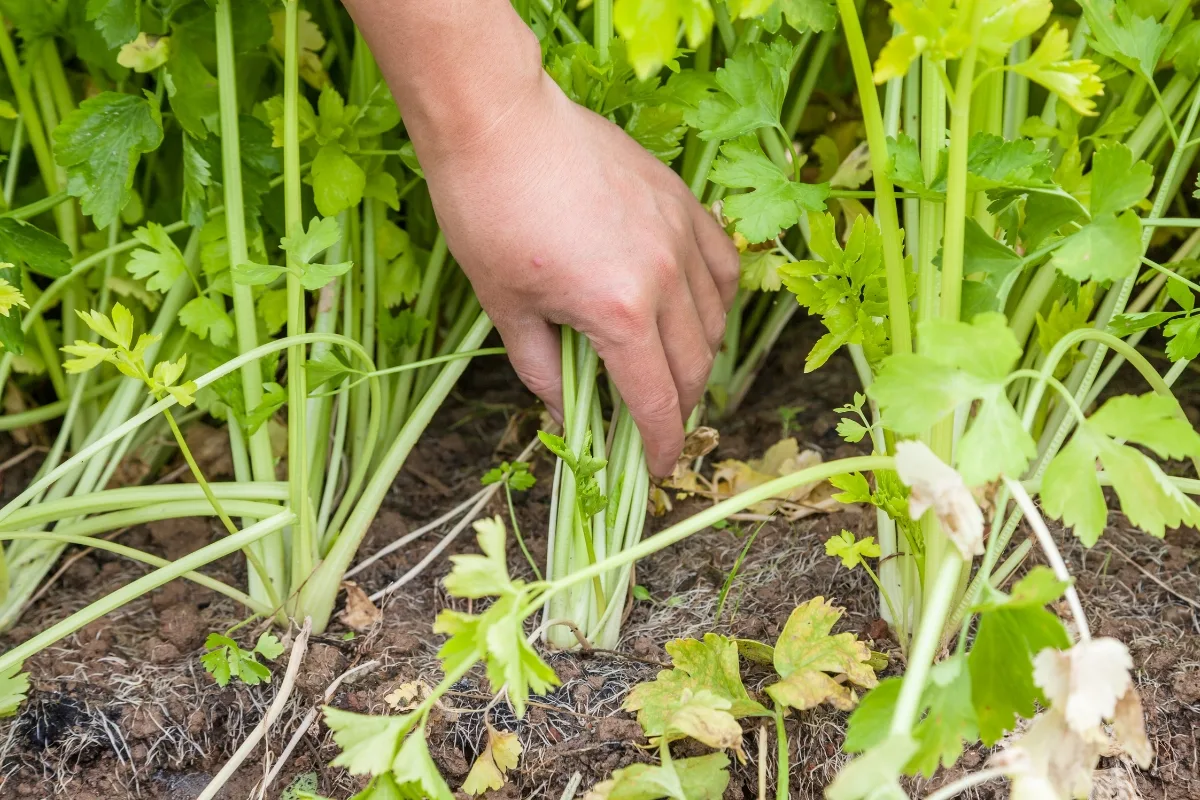
Tips for Companion Planting with Carrots
It's one thing to know which plants make good companions, but it's another to understand how to put this knowledge into action. Here are some tips to consider when planning out your garden.
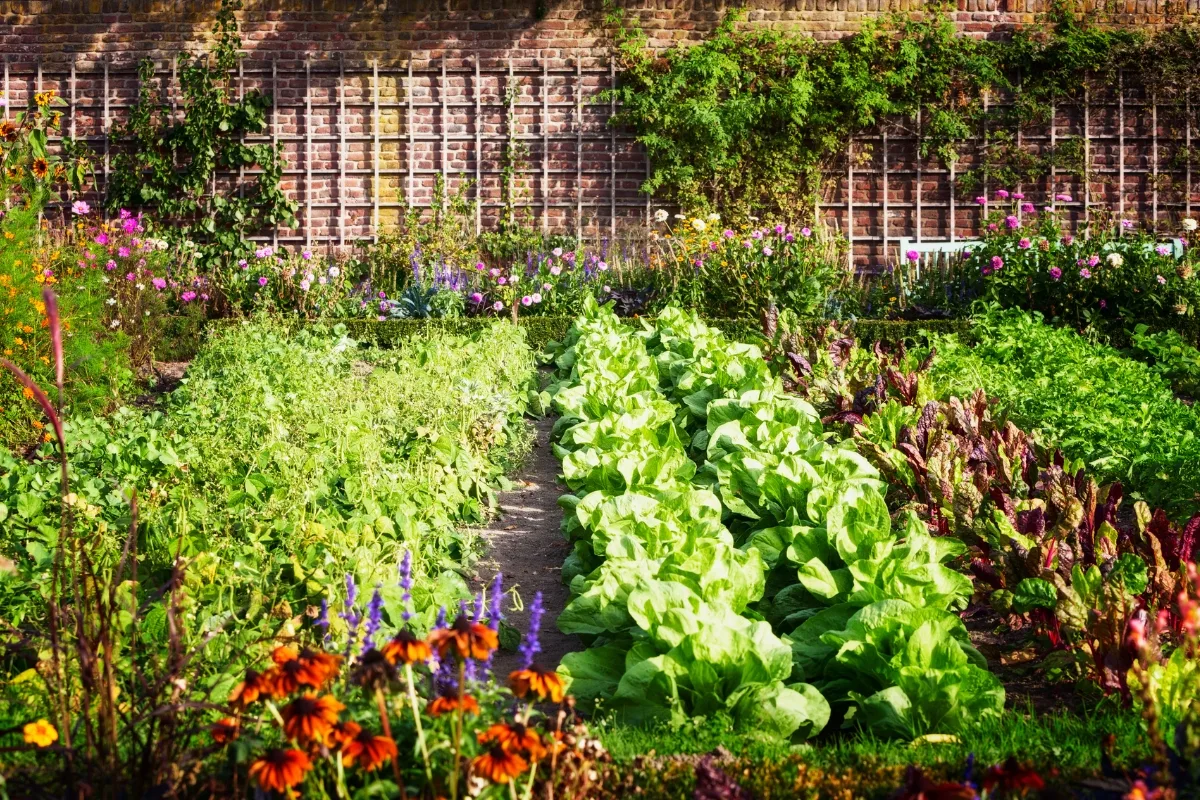
- Spacing: Carrots need space to develop their roots, so make sure not to overcrowd them. The general rule of thumb is to space your carrot seeds about 2 to 3 inches apart. Keep the roots of other plants far enough away to allow a full sized carrot to grow.
- Watering: Consistent watering is key for carrots. However, be mindful of the water needs of their companions too. Overwatering or underwater watering can cause stress to some plants.
- Fertilizing: The same goes for feeding. While carrots are light feeders and do well with an initial dose of fertilizer at planting time, some of their companions might need more frequent feeding. Strike a balance that works for all the plants in your garden.
- Pest control and disease management: Companion planting can naturally help control pests, but sometimes it's not enough. If you notice an influx of pests, intervene early. There are plenty of organic pest control options available that won't harm your plants or the beneficial bugs in your garden.
The key to successful companion planting is understanding and catering to the needs of all the plants in your garden. It's like a jigsaw puzzle; everything needs to fit together just right. If done correctly, it can result in a healthier, more productive garden!

